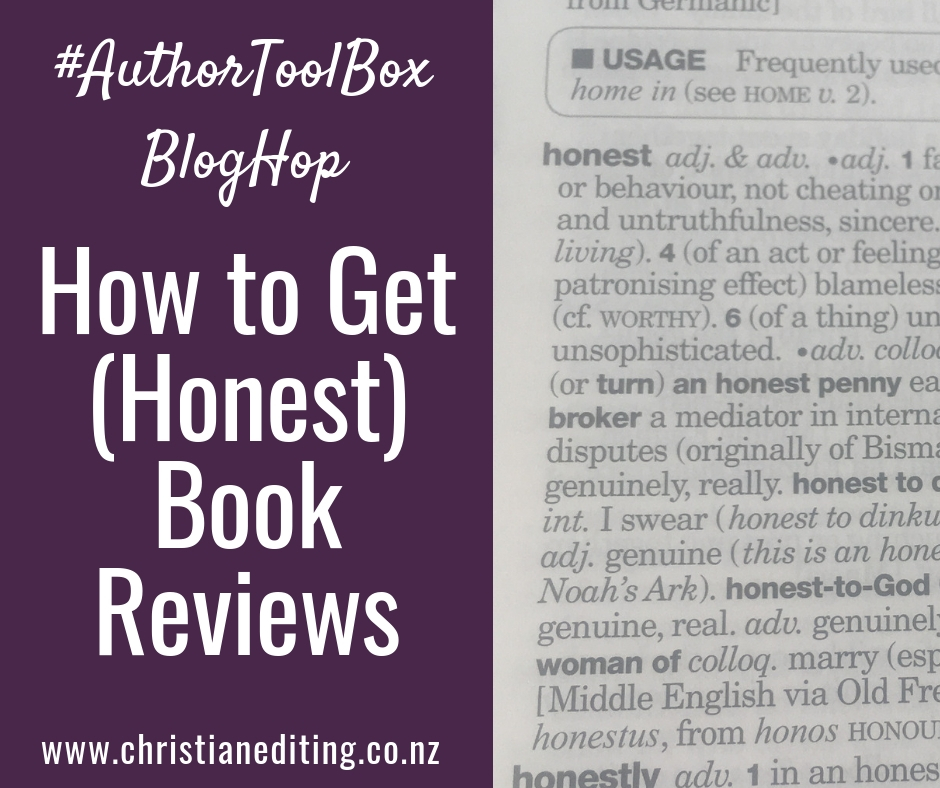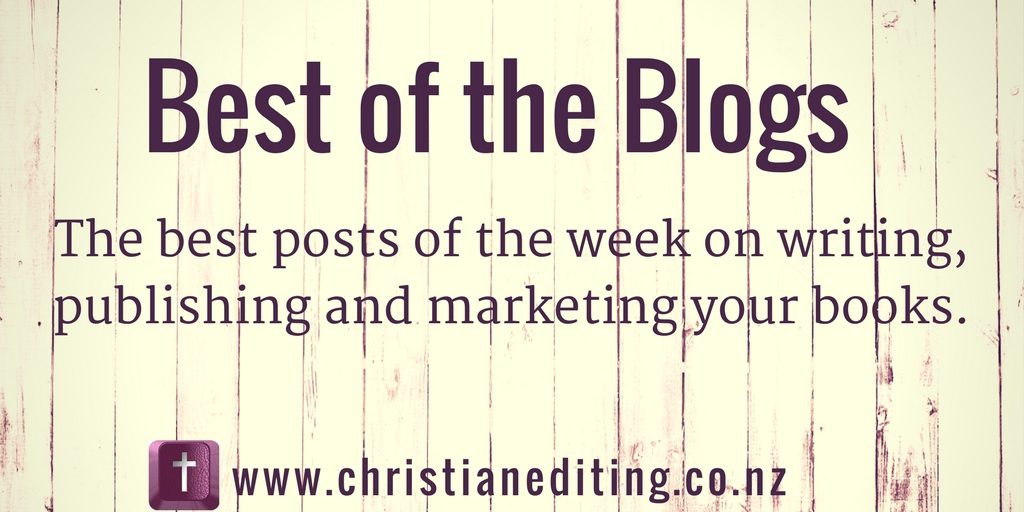This post is part of the monthly Author ToolBox Blog Hop, organised by Raimey Gallant. We now have over 40 blogs participating. To find more Blog Hop posts:
- Click here to visit the main Blog Hop page
- Click here to find our posts on Twitter
- Click here to find our Pinterest board
How to Get Honest Book Reviews
I often see authors online asking either how to get more book reviews, or how many book reviews can they expect.
My (unstatistical) research suggest authors can expect around one review for every 1,000 copies sold. That’s just 0.1%. Even a bestseller might not do much better: John Green has reportedly sold nine million copies of The Fault in Our Stars and has almost 30,000 reviews on Amazon—a review rate of less than 0.4%.
Yet some authors seem to have dozens, even hundreds, of reviews, out of all proportion to sales. Is there some secret?
How do these authors manage to get so many reviews?
It’s easy enough to get dishonest reviews. We all know them: buying reviews, reviewing your own books, asking family members to give your book a five-star review, swapping reviews with other authors, offering reviewers a gift or an entry into a prize draw.
But these reviews are all against Amazon’s reviewing guidelines. These reviews are why Amazon keep updating their reviewing guidelines, as I discussed in A (Not So) Short History of Fake Reviews on Amazon.
So How do you Get Honest Reviews?
Ask.
Yes, ask for reviews. Many readers don’t realise the importance authors place on reviews. Positive reviews provide social proof for potential customers, they influence Amazon’s book popularity ratings, and a certain number of reviews are required in order for authors to advertise on sites like Bookbub. Yet most readers don’t know or understand how useful reviews are, to authors and other readers.
Amazon now restricts reviews to customers i.e. people who have spent $50 in the last year. The spending requirement is per site, so someone who has spent the equivalent of $50 in a foreign store (say, India) can’t then review on the US site.
So if you’re looking for reviews on Amazon.com, you need to find reviewers who shop at Amazon.com.
Who do I Ask?
Ask your readers
Marketing advisors such as David Gaughran advise authors to ask for reviews at the back of the book, and that’s something David does himself: “Word-of-mouth is cruicial for any author to succeed. If you enjoyed the book, please consider leaving a review at Amazon.”
When I first researched this topic in 2014, asking for reviews was a tactic only indie authors used. Now I often see review requests in the back of books from mainstream publishers.
Does this work? In July 2014, Tim Grahl shared on his blog that he had just sold the 10,000th copy of his book, Your First 1000 Copies (including one copy to me). Those 10,000 sales have netted him over 180 reviews—a 1.8% review rate, which is still low, but is almost twenty times more reviews than my unstatistical ‘normal’.
The other thing to do at the end of your book is ask readers to sign up for your email list, so you can let them know when your next book is due to be published (and perhaps even offer your email subscribers a discount, or ask if anyone would like a free review copy …).
Ask Amazon reviewers
While many Amazon reviewers are simply providing random reviews on books or products they’ve used and liked (or not), a growing number are reviewing books or products they’ve been provided with in exchange for a review. Note that reviewers are required to disclose they have received a free copy of the book for review (as per Federal Trade Commission regulations). Not all do, but they are supposed to.
How do you find Amazon reviewers?
It’s time-consuming, but worthwhile. Some people recommend starting with the Amazon Top 10,000 Reviewers list, as these are the most prolific and helpful reviewers and are therefore most likely to accept review requests.
However, I believe this is a waste of time for most authors, and especially for authors writing in a niche genre like Christian fiction. Why? Because many of those reviewers either don’t review books, or don’t read Christian fiction. (The easiest way to become a Top 10,000 Reviewer is to review the Free App of the Day, as it’s guaranteed to get you a lot of votes, and votes are more important than total number of reviews in improving reviewer ranking.)
Rather than focusing on Top Reviewers, focus on people who have reviewed books similar to yours, especially if they have also reviewed self-published books. Click on the reviewer name, and see if they have a website address or email address on their profile. If they have an email address, it’s safe to assume they are open to receiving requests via email. If they only have a website address, check that out to see if they are open to review requests.
Many Amazon reviewers also have book blogs, which is even better: the more sites a review is posted on, the better for your book. To find out if an Amazon reviewer will accept requests for reviews, simply click on their name, which will bring up their personal profile. If you find an Amazon reviewer who agrees to review your book, you’ve got a 50% or better chance of getting a review (personally, I review over 95% of the titles I accept for review, but I know some bloggers review as few as 30%. However, they make it clear that sending them a book doesn’t guarantee a review).
However, many Amazon reviewers already have all the books they can read through sources such as NetGalley or publisher blogging programmes.
You can use a similar technique to find Goodreads reviewers.
What about paid services?
There are paid tools which can do this job for you. I tried one as a free trial, using a book I’d reviewed as the test book. The list didn’t return me as a potential reviewer, which I found odd. I also receive a lot of template requests that I suspect have come from a service such as this. Fewer than 10% are actually requests to review Christian fiction—which is all I review on my blog. As such, I suggest anyone considering a paid tool do their research. There is no point in paying for a tool that doesn’t deliver actionable results.
Ask Bloggers
There are a number of blog tour companies out there, and many specialise by genre (e.g. romance or Christian fiction).
Visit the tour company’s website, find some books similar to yours, see which reviewers have reviewed them positively, visit those reviewer websites, check out their reviewing guidelines, and contact those who are open to unsolicited requests.
The advantage of using bloggers from these networks is that you already know they are open to reading and reviewing books in your genre. If they have a review policy or similar on their blog, you will know they are open to receiving review requests, so go ahead! As with Amazon reviewers, if you find a blogger who will read your book, you have an excellent chance of getting a review.
Ask in a Reader Community
Sites such as Facebook and Goodreads have groups for people seeking reviews. However, some of these offer unethical review swaps. Check out any potential reviewers before sending your book off to them, to ensure they are the right reviewer for your book. You can also check out sites like Story Cartel, which offers your book free to readers who promise to review.
Ask Social Media Followers
Rayne Hall recommends asking social media followers for reviews in her book, Twitter for Writers, by tweeting that your book is available for review. She asks every eight weeks, with a post like this:
“Would anyone like one of my ebooks for free for posting a review at Amazon?”
Hall likes these reviews, as she finds they are honest reviews from people who are interested in her and her books, and she reports that most people who request a review copy via Twitter do follow up with a review. Note that she is staunchly against automated DM tweets, such as those some people use for new followers: “Thanks for following! Please download a free review copy of my book here: xxx.com”.
I’d add one proviso: don’t ask for reviews on your regular Facebook page, as your objective is obtaining reviews from people you don’t know in real life, not an Amazon page full of “friends and family” reviews.









